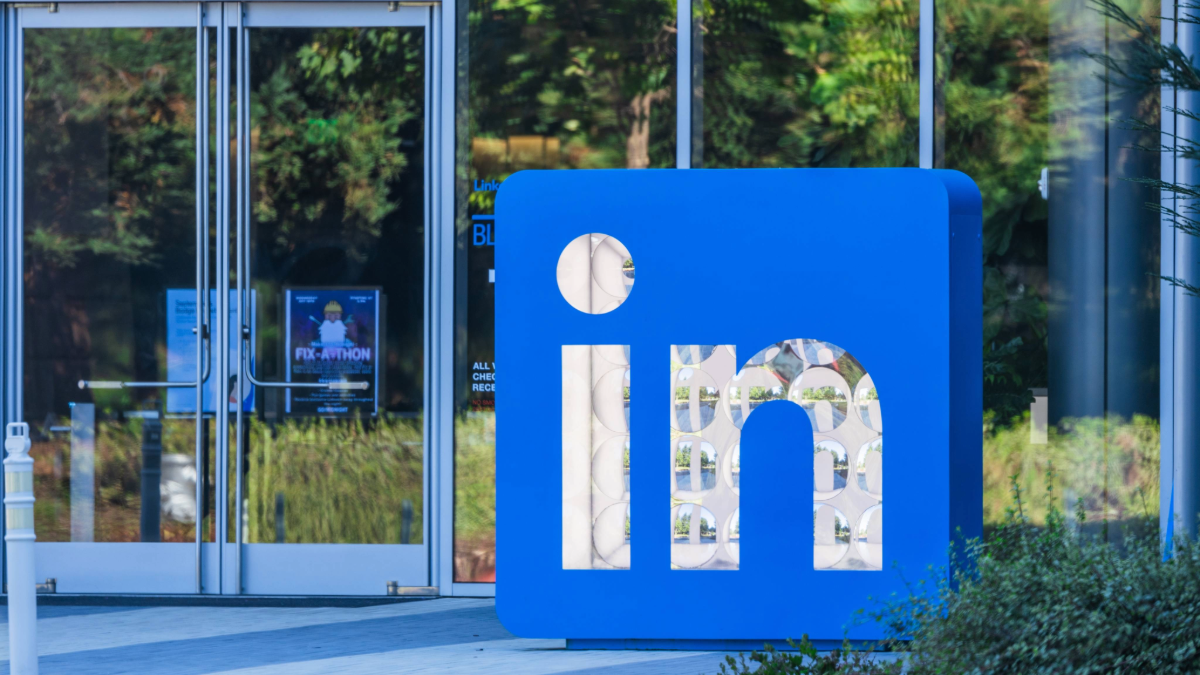LinkedIn Joins Meta and YouTube in Abandoning Policies Designed to Counter Anti-Trans Hate
Jenni Olson / Aug 13, 2025Jenni Olson is the senior director of the GLAAD Social Media Safety Program.
In light of LinkedIn’s recent surreptitious removal of its targeted misgendering and deadnaming policy (the longstanding best-practice policy language maintained by nearly every major platform), it’s an important moment to remind ourselves that public-facing hate speech policies, versus behind-the-scenes moderator enforcement guidelines, exist for a reason. Since most major platforms say they aspire to maintain civil and safe spaces for their users, having clearly stated public policies is a fundamental baseline practice — so that users understand the actual rules of the platform, and also so that trust and safety teams can moderate in alignment with those publicly-stated guidelines.
Needless to say, it’s deeply concerning to see LinkedIn remove a policy protecting transgender and nonbinary people from one of the most prevalent and extreme types of online anti-trans hate at a cultural and political moment in which trans people and our fundamental civil and human rights are under attack in such unprecedented ways. The company’s decision is all the more concerning coming on the heels of Meta and YouTube’s similar decisions this past January.
Meta and YouTube set the precedent
Meta’s extreme policy changes (including dropping many protections against online hate targeted at LGBTQ people, women, immigrants, people of color and other groups) were accompanied by Mark Zuckerberg’s express statements of the company’s rightward political alignments. Meta’s policy changes also included the company using anti-LGBTQ language in its hateful conduct policy, specifically the well-known anti-trans trope “transgenderism” (which the Oversight Board has urged Meta to remove) and the bizarre addition of using the term “homosexuality” to refer to LGBTQ people. Lest there be any doubt about the intentional anti-trans vibes here, the New York Times reported that employees at Meta’s Silicon Valley, Texas, and New York offices said that “facilities managers were instructed to remove tampons from men’s bathrooms.” All major platforms have hate speech policies that prohibit allegations of mental illness on the basis of protected characteristics because such assertions, when made about historically marginalized groups, are recognized as dehumanizing and harmful. But Meta specifically added language exempting LGBTQ people from these protections:
We do allow allegations of mental illness or abnormality when based on gender or sexual orientation, given political and religious discourse about transgenderism [sic] and homosexuality [sic].
For the record, per Poynter’s fact check when Meta implemented the policy change: “Leading medical experts do not consider being gay or transgender to be a mental illness.” But despite these dangerous policy change games, Meta still includes sexual orientation and gender identity as categories of its hateful conduct policy. It begs the question of how Meta’s trust and safety teams actually understand their mandate to protect LGBTQ users (especially in light of the leak of the company’s moderator guidance which includes so much express allowance of anti-LGBTQ hate). The reports that we’ve seen about the experience of LGBTQ people on Meta platforms indicates that things are very bad. In the recently released Make Meta Safe report, in which GLAAD, UltraViolet, and All Out surveyed more than 7,000 active users from 86 countries on the aftermath impact of Meta’s January policy rollbacks, 75% of LGBTQ respondents said that harmful content has increased: “Violence against me has skyrocketed since January. I live in daily fear,” said one respondent. The report is filled with numerous similar statistics and anecdotes.
Like LinkedIn, in its January changes, YouTube attempted to implement the company’s apparent ideological realignment surreptitiously. When pressed to explain the alarming removal of gender identity from its list of protected groups in its hate speech policy, YouTube downplayed the change, describing it as a copy edit and weirdly asserting that “the enforcement of the policy hasn’t changed.” Why would you remove a policy but still enforce it?
In my five years leading GLAAD’s tech accountability advocacy work, this policy change is one of the worst I’ve ever seen. As a GLAAD spokesperson explained to Taylor Lorenz for her User Mag feature breaking the story:
If YouTube’s hate speech policy really does still protect people from being targeted with hate on the basis of ‘gender identity,’ the public-facing policy should continue to say that,” a GLAAD spokesperson said, adding that this removal would lead an average user to believe that the policy has changed.
The company’s ‘copy edit’ aligns exactly with the instructions spelled out in the far-right agenda of Project 2025, which calls for targeting “woke culture warriors … start[ing] with deleting the terms sexual orientation and gender identity” from official documents.
Tech leaders show their true colors
As horrible as all these 2025 rollbacks have been, it’s been heartening to see the broad media coverage and consensus amongst tech accountability folks, and especially in these past two weeks since the Open Terms Archive discovered LinkedIn’s quiet retraction. As TechDirt editor Mike Masnick noted in his analysis:
This is exactly the wrong moment for tech companies to be weakening protections for vulnerable communities. Anti-trans rhetoric and legislation have reached fever pitch, with the Trump administration making attacks on transgender rights a central part of its agenda. This is when platforms should be strengthening their commitment to protecting people from harassment, not quietly rolling back safeguards.
As Masnick points to in his fantastic headline, “LinkedIn Joins The Parade Of Cowards: Quietly Strips Anti-Trans Protections To Appease MAGA Mob,” the most important takeaway from the new LinkedIn capitulation is this: As companies like Meta, YouTube, and LinkedIn intentionally abandon the policies that protect LGBTQ people (and especially trans and nonbinary people) from the extraordinary harms and hate that we face on their platforms — it is extremely important that we all understand those decisions as a reflection of their managements’ values and of where they stand in the larger political landscape. As last year’s Open Zero report on Decoding LGBTQ Scapegoating notes:
The rhetorical, political, and physical attacks targeting the LGBTQ community are, in addition to a critical rights issue, a central component of the authoritarian playbook, cloaking themselves as culture war politics as usual. LGBTQ scapegoating is not random. It is not a natural consequence of polarization or an expected backlash to rights advancements, but rather a strategy to deepen divisions and erode democracy.
To repeat what I wrote in Tech Policy Press after the January policy rollbacks: This is not normal.
Authors

